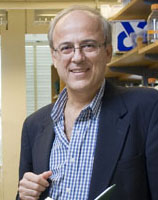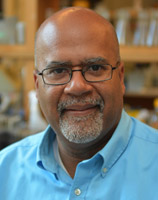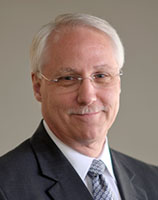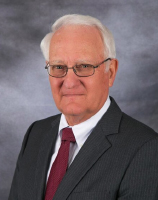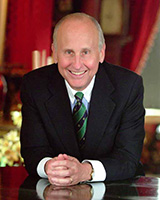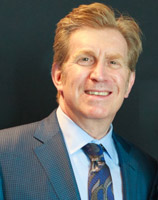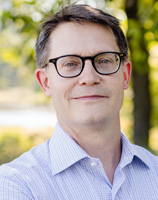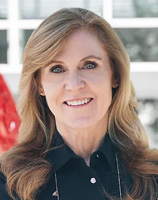Gene E. Robinson, Director
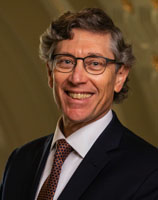 A beehive is breathtakingly beautiful in both its simplicity and its complexity. A successful hive requires all parts to be working in harmony—roles are clearly defined. As an entomologist, I’ve been studying bee society for more than 35 years, so perhaps it’s not unusual for me to draw parallels between the hive and the busy, bustling labs that comprise the Carl R. Woese Institute for Genomic Biology. I am truly struck by the similarities—we are hundreds of faculty, staff, postdocs, graduate and undergraduate students, all working toward a common goal to pioneer advances in the life sciences.
A beehive is breathtakingly beautiful in both its simplicity and its complexity. A successful hive requires all parts to be working in harmony—roles are clearly defined. As an entomologist, I’ve been studying bee society for more than 35 years, so perhaps it’s not unusual for me to draw parallels between the hive and the busy, bustling labs that comprise the Carl R. Woese Institute for Genomic Biology. I am truly struck by the similarities—we are hundreds of faculty, staff, postdocs, graduate and undergraduate students, all working toward a common goal to pioneer advances in the life sciences.
As one of the Institute’s original theme leaders, I have been a part of the IGB since the beginning, and it is an honor for me to lead an institution of this caliber. The state of Illinois invested $75 million in 2003 to fund the construction and start up of the IGB—in under a decade, those costs were more than recouped with external grants and contracts. Our scientific productivity and intellectual property output is getting stronger and stronger, we've seen several startup companies based on IGB research, and IGB researchers continue to push the boundaries and increase our knowledge and discovery.
The progress and promise of the IGB is especially apparent in the early career successes of our early career investigators, who are bringing fresh perspectives to bear on important problems and motivating themselves and their peers to even greater achievements. These individuals have already established themselves as valuable scientific contributors, and are poised for even greater success in the years ahead. Their participation in our thematic research groups helps drive the creative spark to push further into the undiscovered.
A dynamic institute such as ours must balance the need for continuity and consistency in the research that we are pursuing with a forward-looking stance that embraces new opportunities whenever we can. In conjunction with our faculty and staff, we continue to evaluate our research themes to identify new areas to explore, undertake outreach and educational opportunities, and develop new ideas to generate economic development through our discoveries. I am passionately committed to the founding mission of the IGB, to advance life sciences research and stimulate bioeconomic development in the state of Illinois.
Our strategic approach to the future is critical to our continued success. Realizing the full potential of the genomic revolution requires integrating approaches and results from different sub-disciplines of biology with technologies, concepts, approaches, and information from disciplines such as engineering, computer science, physics, chemistry, mathematics, and the geological, atmospheric and social sciences. The treasure trove of “big data” generated by genomic research brings its own unique challenges in data management, necessitating an increase in computation prowess. Given that IGB researchers come from more than 35 different departments and 10 colleges across campus and contribute to leading partnerships both locally and nationally, the institute is clearly equipped to lead that charge.
Our research is creative, collaborative and innovative. We focus on the significant problems facing humanity, such as treating chronic human diseases, managing new and emerging pests and pathogens, and maintaining an abundant and healthy food supply. We also address fundamental questions in science, such as the origin of life, or how the brain works. Genomic biology will continue to help solve some of these grand challenges in health, technology, and our environment. The integrative, interdisciplinary and collegial approach of the IGB has made remarkable and pathbreaking advances. I hope you will join us as we continue on our journey.
IGB External Advisory Members
The IGB is constantly evolving, with all aspects of the institute under review annually and biennially by specialized boards selected from a broad range of disciplines which embody leadership within their field.
Science Advisory Board
The Science Advisory Board is composed of distinguished scientists from academia and government, who meet biennially to advise on the research portfolio of the IGB and strategize synergy with our outreach and public science education portfolio.
Leadership Council
The Leadership Council (LC) is an advisory board to the IGB composed of prominent individuals from the business world who counsel the institute annually on efforts to encourage business development, commercialization and philanthropy in support of our community engagement goals.
Joanne Chory
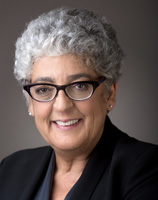 Howard H. and Maryam R. Newman Chair in Plant Biology
Howard H. and Maryam R. Newman Chair in Plant Biology
Salk Institute
Joanne Chory leads the Salk Institute’s Harnessing Plants Initiative, an effort to enhance the capacity of plants to capture and store carbon to address the threat of climate change. She has used the model plant Arabidopsis thaliana to completely map the plant steroid signaling system. Chory became a Howard Hughes Medical Institute Investigator in 1997; she became a Fellow of the American Association for the Advancement of Science in 2005 and a Foreign Member of the Royal Society of London in 2011.
Robert Easter
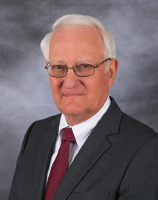 President Emeritus, University of Illinois
President Emeritus, University of Illinois
Dean Emeritus, College of Agricultural, Consumer and Environmental Sciences
Professor Emeritus, Animal Sciences and Nutritional Sciences
Robert Easter joined the University of Illinois Urbana-Champaign faculty after earning his doctorate in animal science in 1976. He served as a department head, dean, interim provost, interim chancellor and interim vice chancellor for research at UIUC and was appointed as president in 2012. He was named president emeritus in 2015, is also an emeritus professor, and received an honorary doctorate from Iowa State University. Dr. Easter has investigated the amino acid needs of the lactating sow, the impact of post-weaning nutrition on growth composition to market and the use of various agents to alter lean growth in pigs. He has served as the Board for International Food and Agricultural Development (BIFAD) chair, received the Paul A. Funk Award for contributions to Illinois agriculture, the Charles B. Schuman Award for Distinguished Service to Agriculture by the Illinois Farm Bureau, and the University's Distinguished Service Medallion for unwavering devotion to the University.
Scott Edwards
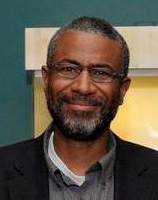 Alexander Agassiz Professor of Zoology and Curator of Ornithology
Alexander Agassiz Professor of Zoology and Curator of Ornithology
Museum of Comparative Zoology, Harvard University
Scott Edwards has been a pioneer in avian molecular phylogenetics, employing DNA sequencing and comparative genomics to explore the evolutionary and natural history of birds. He has helped to improve analytical methods that take full advantage of comprehensive sequence data to estimate phylogenetic relationships. Edwards was elected to the American Academy of Arts and Sciences and as a Fellow in the American Association for the Advancement of Science in 2009, and as a member of the National Academy of Sciences in 2015. He has served as President of the Society for the Study of Evolution, the Society of Systematic Biologists, and the American Genetic Association.
Richard Foster
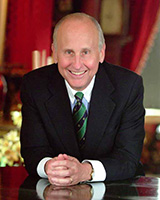 Managing Partner
Managing Partner
Millbrook Management Group LLC
Richard Foster is a director of, and investor in, digital healthcare, cyber security and food security companies. He is currently the Managing Partner of the Millbrook Management Group LLC. He is an Emeritus Director of McKinsey & Co., where he was a founder and leader of McKinsey’s Healthcare, Technology and Private Equity Practices. He is also Venture Partner at Lux Capital and Board Member of Memorial Sloan Kettering, the W. M. Keck Foundation and a member of the National Academies of Science, Engineering and Medicine Presidents’ Circle. His research interests are in long-term relationships between innovation, regulation and capital formation. He is a Fellow of the American Academy of Arts and Sciences.
Peter Fox
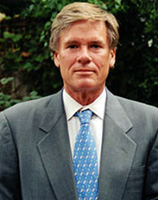 Founder and Chairman
Founder and Chairman
Fox Development Corporation
Peter Fox founded Fox Development Corporation, a real estate development firm in Champaign. He serves as the Developer and Manager of Research Park at the University of Illinois, which is home to more than 90 companies. Previously, he served as the Senior Managing Director of Bear, Stearns & Companies, Inc., a global investment banking, securities trading and brokerage firm.
Robert Fraley
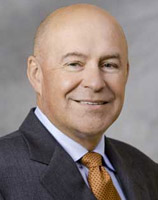 Former Executive Vice President and Chief Technology Officer
Former Executive Vice President and Chief Technology Officer
Monsanto
Robert Fraley oversaw Monsanto’s integrated crop and seed agribusiness technology and research as the Executive Vice President and Chief Technology Officer. He began his career as a Senior Research Specialist in Monsanto’s Biological Sciences Program, later becoming President of Monsanto's former Ceregen business unit and Co-president of Monsanto’s Agricultural Sector. Fraley is an alumnus of the University of Illinois (PhD Microbiology, Biochemistry, 1978) and is a recipient of the World Food Prize.
Conrad Gilliam
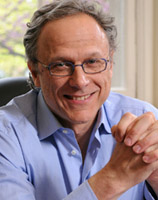 Dean for Research and Graduate Education
Dean for Research and Graduate Education
University of Chicago
Conrad Gilliam is the Marjorie I. and Bernard A. Mitchell Professor in the Department of Human Genetics, as well as the Dean for Research and Graduate Education in the Biological Sciences Division at the University of Chicago. He came to the university in 2004 as Chair of Human Genetics. His research focuses on identifying and characterizing heritable mutations affecting the nervous system, from genetic mapping of rare disease mutations to the study of common heritable disorders.
Larry Gold
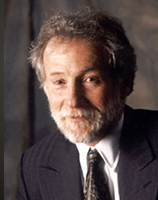 Professor
Professor
University of Colorado Boulder
Larry Gold is a Professor of Molecular, Cellular and Developmental Biology at the University of Colorado Boulder. He is also the Founder, Chairman and CEO of SomaLogic, a protein biomarker discovery and clinical diagnostics company. In addition, he founded NeXagen, Inc., which became NeXstar Pharmaceuticals and later merged with Gilead Sciences, Inc., a research-based biopharmaceutical company. In 1995, he was elected to the National Academy of Sciences.
Catherine Kleinmuntz
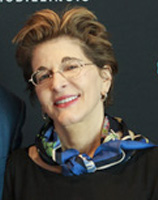 Principal
Principal
Kleinmuntz Associates
Catherine Kleinmuntz is Principal at Kleinmuntz Associates, an analytics consultancy and investment firm, and is co-Executive Director of the Kleinmuntz Family Foundation, where she focuses on philanthropic endeavors. She has more than three decades of experience working in the healthcare business sector, with a primary focus on using information technology to improve financial processes in healthcare provider organizations. Kleinmuntz and her husband, Don Kleinmuntz, were cofounders of Strata Decision Technology, a leading provider of financial analytics software solutions for the healthcare industry; Kleinmuntz served as President and CEO until the company’s sale in 2011.
Don Kleinmuntz
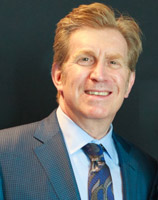
Principal
Kleinmuntz Associates
Don Kleinmuntz is Principal at Kleinmuntz Associates, an analytics consultancy and investment firm, co-Executive Director of the Kleinmuntz Family Foundation, a philanthropic foundation, and Adjunct Professor of Information Technology, Analytics, and Operations at the University of Notre Dame's Mendoza College of Business. An expert on decision analysis and business analytics, he has made significant contributions in both academia and industry. Kleinmuntz and his wife, Catherine Kleinmuntz, were cofounders of Strata Decision Technology, a leading provider of financial analytics software solutions for the healthcare industry, and he held a variety of executive positions in the company including CFO, CIO, and interim CEO.
John Landgraf
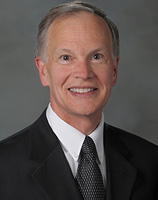 Former Executive Vice President
Former Executive Vice President
Abbott Nutrition
John Landgraf is the former Executive Vice President of Abbott Nutrition, where he oversaw two divisions and 16,000 employees during his 38-year career. He established an endowed fund to support students in the College of Liberal Arts and Sciences at Northern Illinois University in activities ranging from undergraduate research, study abroad, service learning, internships, and teaching or clinical experiences, and serves on the boards for the Northeast Illinois Council — Boy Scouts of America, the Mailisita Foundation and Education Center, and Crealta Pharmaceuticals LLC.
Edison Liu
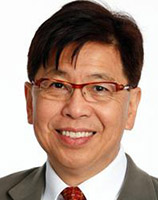 Professor, President Emeritus, and Honorary Fellow
Professor, President Emeritus, and Honorary Fellow
The Jackson Laboratory
Edison Liu is Professor, President Emeritus, and Honorary Fellow of The Jackson Laboratory, an independent, nonprofit research institution that studies how to prevent, treat and cure human disease through genetics. As the founding Executive Director of the Genome Institute of Singapore, he expanded the Institute’s staff from three to 270 in less than 10 years. Prior to that position, Liu was the scientific director of the National Cancer Institute's Division of Clinical Sciences. Liu is a Fellow of the American Academy of Arts and Sciences.
Elaine Mardis
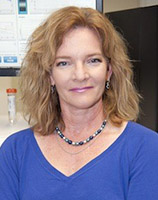 Professor of Pediatrics
Professor of Pediatrics
College of Medicine, Ohio State University
Elaine Mardis investigates cancer genomics, determining the pathways that may cause cancer development and developing precision therapeutic approaches. She served as Director of Technology Development at the McDonnell Genome Institute at Washington University and was also Professor in the Department of Genetics, with an adjunct appointment in the Department of Molecular Microbiology, and now serves as Professor of Pediatrics at the College of Medicine, Ohio State University. In 2010, she received the Scripps Translational Research Award for work on cancer genomics.
Kathie Olsen
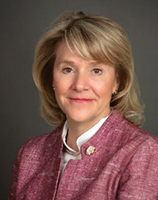 Founder and Managing Director
Founder and Managing Director
KLO International, LLC
Kathie Olsen is a former Deputy Director and COO at the National Science Foundation. Olsen has been awarded NASA’s Outstanding Leadership medal, the NSF Director’s Award of Excellence, and many others. She is currently Founder and Managing Director of KLO International, LLC, a consulting firm in Arlington, VA. In 2003, Olsen was elected a Fellow of the American Association for the Advancement of Science.
Aristides Patrinos
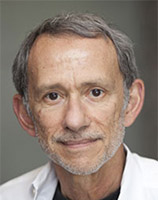 Chief Scientist & Director of Research
Chief Scientist & Director of Research
Novim
Aristides Patrinos was previously Deputy Director, Research, NYU Center For Urban Science & Progress and Director of the Office of Biological and Environmental Research in the Department of Energy’s Office of Science. He is well known for his leading roles in the development of the U.S. Global Change Research Program and the U.S. Human Genome Project. In addition, he helped create the Joint Genome Institute and developed and launched the Genomes to Life Program. In 2003, he was elected a Fellow of the American Association for the Advancement of Science.
Aaron Rudberg
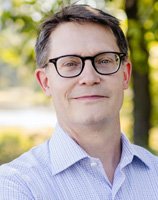 Managing Director, COO
Managing Director, COO
S2G Ventures/Builders Private Capital
Aaron Rudberg is Managing Director and COO of S2G Ventures/Builders Private Capital, the direct investment arm for Builder’s Vision. Aaron has worked in the investment business his entire professional career, and brings experience as an entrepreneur and institutional investor. Prior to joining S2G, Aaron spent 10 years at Baird Capital as a Partner and Managing Director overseeing the global strategy, investor relations, marketing and business development for the $3.5 billion private equity and venture capital business. Aaron received a BA from the University of Illinois Urbana-Champaign and an MBA from the Kellogg School of Management at Northwestern University. Aaron is a member of the board of The Civic Federation, Adler Planetarium, and was named an Emerging Leader by the Chicago Council of Global Affairs in 2014.
Barbara Schaal
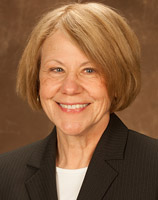 Dean of the Faculty of Arts & Sciences
Dean of the Faculty of Arts & Sciences
Washington University in St. Louis
Barbara Schaal was among the first plant scientists to use molecular biology-based approaches to understand evolutionary processes in plants, and has worked to advance understanding of plant molecular systematics and population genetics. Her recent work includes collaborative research into the evolutionary genetics of plants to enrich food crops such as cassava and rice. She was appointed to the President’s Council of Advisors on Science and Technology in 2009 and in 2012, and was elected to the National Academy of Sciences in 1999. She is currently the Dean of the Faculty of Arts & Sciences and Mary-Dell Chilton Distinguished Professor in the Department of Biology in Arts & Sciences at Washington University in St. Louis.
Pamela Silver
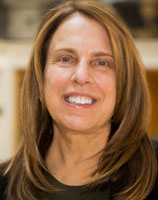
Elliot T and Onie H Adams Professor of Biochemistry and Systems Biology
Department of Systems Biology at Harvard Medical School
Pamela Silver is the Elliot T and Onie H Adams Professor of Biochemistry and Systems Biology in the Department of Systems Biology at Harvard Medical School. She is also a founding core faculty member of the Harvard University Wyss Institute for Biologically Inspired Engineering. Her research combines lessons from Nature to the design of new organisms for both discovery and application, the most recent innovations including bacteria that can sense and respond to gut inflammation, and the Bionic Leaf which couples sunlight capture to bioproduction at an efficiency exceeding plants. She is a co-founder of Karyopharm Therapeutics.
Gregory Stephanopoulos
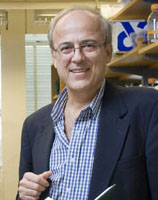 Willard Henry Dow Professor in Chemical Engineering
Willard Henry Dow Professor in Chemical Engineering
Massachusetts Institute of Technology
Gregory Stephanopoulos leads research in biofuels and the production of chemicals and materials from renewable resources, to advance the concept of a biobased economy, as well as the analysis of metabolic networks to better understand human disease, including cancer. He is the Willard Henry Dow Professor in Chemical Engineering at Massachusetts Institute of Technology (MIT) and leads the Bioinformatics & Metabolic Engineering Laboratory at MIT. He is a member of the National Academy of Engineering, served in 2016 as President of the American Institute of Chemical Engineers, and in 2023 was elected to the National Academy of Sciences.
Nancy Sullivan
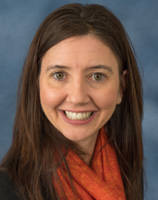 CEO and Managing Director
CEO and Managing Director
Illinois Ventures
Nancy Sullivan has more than 15 years of experience in the commercialization and entrepreneurial sector. In her role at Illinois Ventures, she promotes the development and commercialization of emerging technologies based on University of Illinois research. Sullivan serves on the boards of two Chicago based startups, Personify and Diagnostic Photonics.
Steven Thayer
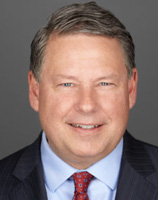 Partner
Partner
Handler Thayer, LLP
Mr. Thayer is a founding partner of Handler Thayer, LLP. He currently serves as the Chairman of the firm’s Commercial Practice Group, which includes the firm’s Business & Corporate Practice, Real Estate Practice, and Sports & Entertainment Law Practice. Mr. Thayer has a diverse background and has represented individuals, businesses, and family offices in a variety of legal matters. Thayer is an alumnus of the University of Illinois (BA Economics, 1988), was awarded the 2018 Chicago Illini of the Year Award, and holds a membership in the University of Illinois Foundation’s President’s Council. He is a member of the American, Illinois State, Iowa State, and Chicago Bar Associations.
Paul Turner
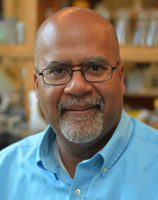 Rachel Carson Professor of Ecology and Evolutionary Biology
Rachel Carson Professor of Ecology and Evolutionary Biology
Yale University
Paul Turner and his lab study evolutionary genetics and genomics of microbes, especially the ability of viruses to adapt to environmental changes, at all levels of biological organization –molecules, proteins, cells, populations, communities and ecosystems, and also study arthropod-borne viruses, specifically those vector-transmitted by mosquitoes. In 2019 Turner was elected Fellow of the American Academy of Microbiology, Fellow of the American Academy of Arts & Sciences, and Fellow of the National Academy of Sciences.
Kimberly Valentine-Poska
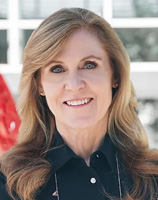 Principal
Principal
Global Capital Markets, Inc.
Kimberly is a visionary leader and qualified financial executive. She has over twenty-five years of global experience as an investment banker, entrepreneur, Partner for Deloitte, and board director. Known for successfully leading mergers & acquisitions, Kimberly provides integrative financial oversight for middle-market & Fortune 500 corporations. She has an established reputation for effectively collaborating with all stakeholders in achieving transformational innovation and business growth.
Susan Wessler
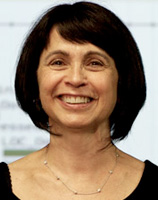 Distinguished Professor of Genetics
Distinguished Professor of Genetics
University of California, Riverside
Susan Wessler is a molecular geneticist known for her contributions to the field of transposon biology, specifically on the roles of plant transposable elements in gene and genome evolution. Wessler is the Neil A and Rochelle A. Campbell Presidential Chair for Innovations in Science Education and Distinguished Professor of Genetics at the University of California, Riverside. In 2011, she was elected Home Secretary of the National Academy of Sciences, the first woman to hold this position in the 150-year history of the National Academy. She is a Howard Hughes Medical Institute Professor and a fellow of the American Academy of Arts and Sciences.
James Weyhenmeyer
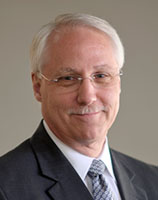 Professor of Anatomy, Physiology and Pharmacology, College of Veterinary Medicine
Professor of Anatomy, Physiology and Pharmacology, College of Veterinary Medicine
Auburn University
James Weyhenmeyer was a Professor of Cell Biology, Neuroscience and Pathology at the University of Illinois, later Vice President for Research & Economic Development at Auburn University, where he provided leadership to a wide variety of research units, as well as serving as Professor of Anatomy/Physiology/Pharmacology in the College of Veterinary Medicine, of Chemical Engineering in the Samuel Ginn College of Engineering, and of Biological Sciences in the College of Sciences and Mathematics. He is a member of several honorary societies, including the Royal Academy of Engineering Sciences.





